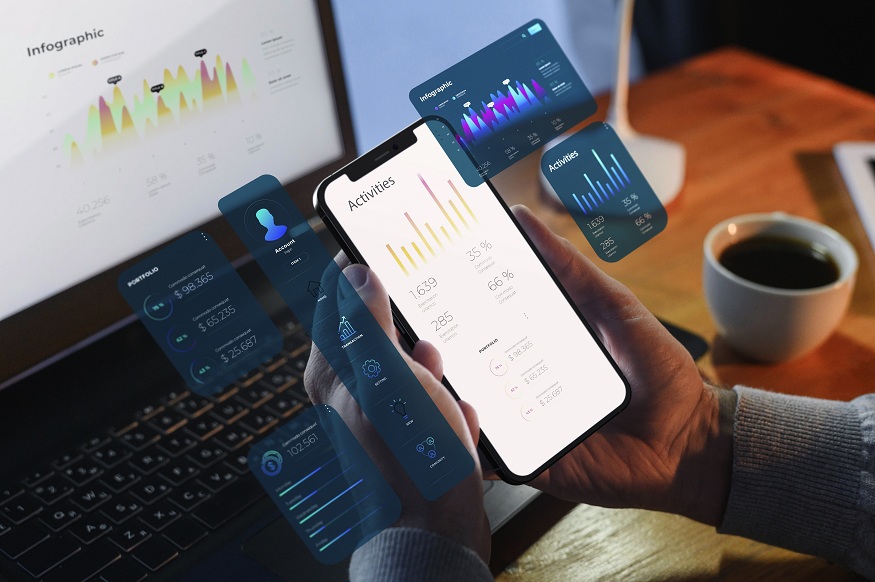In recent years, digital transactions have gained unprecedented momentum in India, transforming how we handle money. At the forefront of this financial revolution is the Unified Payments Interface, more commonly known as UPI. With the convenience it offers, UPI has become an ingrained part of everyday life for millions. However, with this convenience comes a crucial concern: security. Let us delve into why having a secure UPI app is indispensable in today’s digital economy.
The Rise of UPI in India
The introduction of UPI in 2016 marked a paradigm shift in the way Indians conducted financial transactions. Developed by the National Payments Corporation of India (NPCI), UPI allows users to link multiple bank accounts in a single application, eliminating the need for cash or card transactions. Recently, UPI surpassed 10 billion monthly transactions, underscoring its widespread acceptance among businesses and consumers alike.
This remarkable growth can be attributed to the ease of use, rapid transaction processing, and interoperability across banks. Nonetheless, the allure of quick transactions and their increasing volume means that UPI platforms must stay ahead in terms of security.
Why Security Matters in UPI Apps
The Threat Landscape
Digital payment systems are prime targets for cybercriminals aiming to exploit vulnerabilities. According to a report by the Reserve Bank of India, cyber fraud costs banks and their customers significant finances every year. The implications of a security breach are not merely financial; they erode trust, a cornerstone of any financial system.
Consider this analogy: just as a fort needs strong walls to protect its treasures, UPI apps necessitate robust security measures to guard sensitive financial information. Without these safeguards, users are left exposed to phishing attacks, identity theft, and fraudulent transactions.
Protecting User Data
In an era where data is the new oil, safeguarding personal and financial data has never been more critical. A secure UPI app implements end-to-end encryption, ensuring that information accessed and transmitted remains confidential and unaltered. Moreover, multi-factor authentication (MFA) adds an extra layer of defence, requiring users to verify their identity through additional means besides just a password.
As cyber threats evolve, enhancing security features like biometric authentication, such as fingerprints or facial recognition, can provide greater assurance to users that their data is secure.
The Role of Regulation and Standards
The Indian government, recognising the potential threats, has enforced stringent regulations to protect consumers. The RBI’s guidelines mandate that all UPI transactions be carried out with the highest security standards. These regulations push the developers of UPI apps to constantly innovate and upgrade their security protocols, ensuring they remain a step ahead of malicious elements.
While regulations provide a blueprint, it is up to the companies to implement and adhere to these guidelines to ensure every secure UPI app is reliable. Standards such as PCI-DSS (Payment Card Industry Data Security Standard) provide a framework that developers can follow to secure payment information effectively.
Best Practices for Secure UPI Transactions
User Education
Though app developers play a significant role in ensuring security, users must also be educated on safe transaction practices. This includes recognising phishing attempts, understanding the importance of secure passwords, and not sharing personal information with unverified sources.
Imagine a driver who is aware of road rules versus one who is not—the former contributes to a safer environment. Similarly, informed users make the digital space safer and thwart potential threats.
Regular Updates
Regular app updates are critical for maintaining security. Developers consistently work to identify vulnerabilities and patch them before they can be exploited. Users should diligently update their apps to benefit from these improvements.
Two-Factor Authentication (2FA)
Implementing 2FA can significantly mitigate risks by requiring users to verify their identity using a second factor, like a one-time password (OTP). This drastically lowers the chances of unauthorised access, as both the password and the unique OTP are required to proceed with a transaction.
The Future of UPI Security
As technology advances, so do the threats. Staying ahead of cybercriminals requires continuous innovation and investment in security technologies. Machine learning and artificial intelligence are now being leveraged to predict potential attack vectors and proactively combat them.
Blockchain technology, with its decentralised nature, offers promising possibilities for secure transactions, ensuring transparency and reducing the risk of data tampering. As these technologies become more mainstream, the security landscape of UPI apps will undoubtedly evolve.
Moreover, collaborations between financial institutions, government bodies, and tech innovators will be essential in crafting solutions to emerging security challenges. A unified front will ensure a resilient and secure digital payment ecosystem.
Conclusion: Embracing a Secure Digital Future
In conclusion, the role of a secure UPI app in India’s digital economy cannot be overstated. It not only protects personal and financial data but also fortifies the trust that underpins the entire payment system. As we embrace digital transactions, users, developers, and regulators must collaboratively champion security.
For consumers, practising safe online habits and staying informed about potential scams can make a significant impact. For developers, consistent updates and adherence to security standards are non-negotiable. And for regulators, robust policies ensure that all stakeholders maintain the integrity of the platform.
In this ever-evolving digital landscape, a secure UPI system represents both opportunity and responsibility. By valuing security as much as convenience, we can navigate the new digital economy with confidence and assurance. The future is digital, and with a focus on security, it promises to be a safe and prosperous journey.



